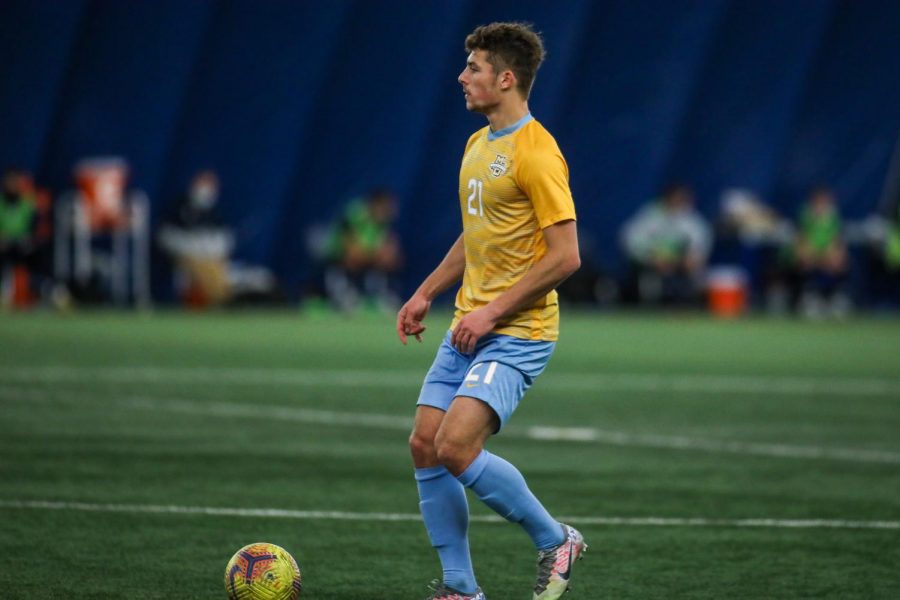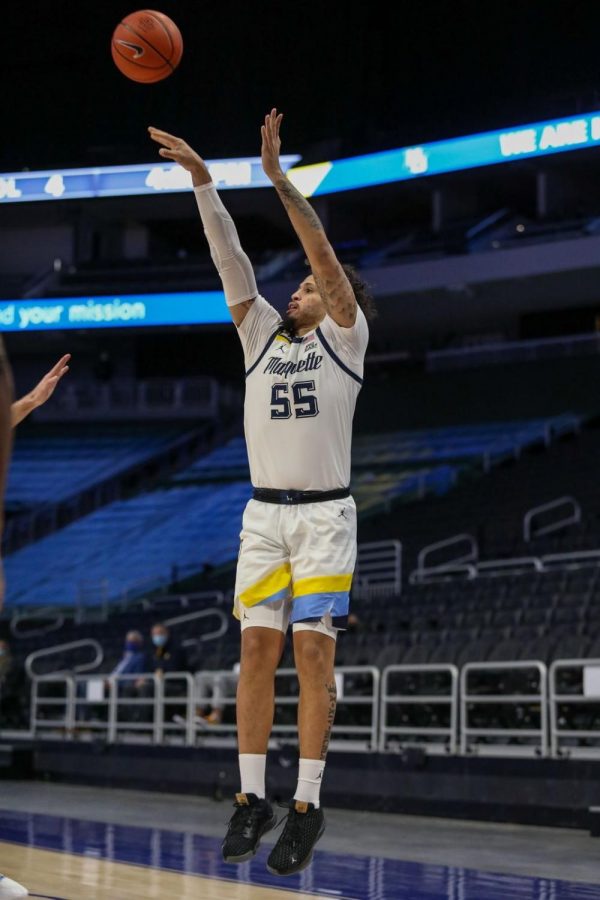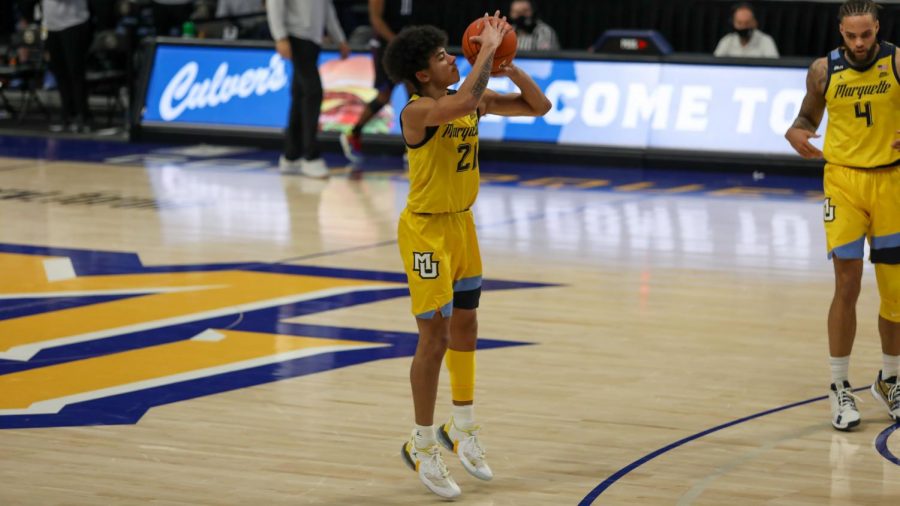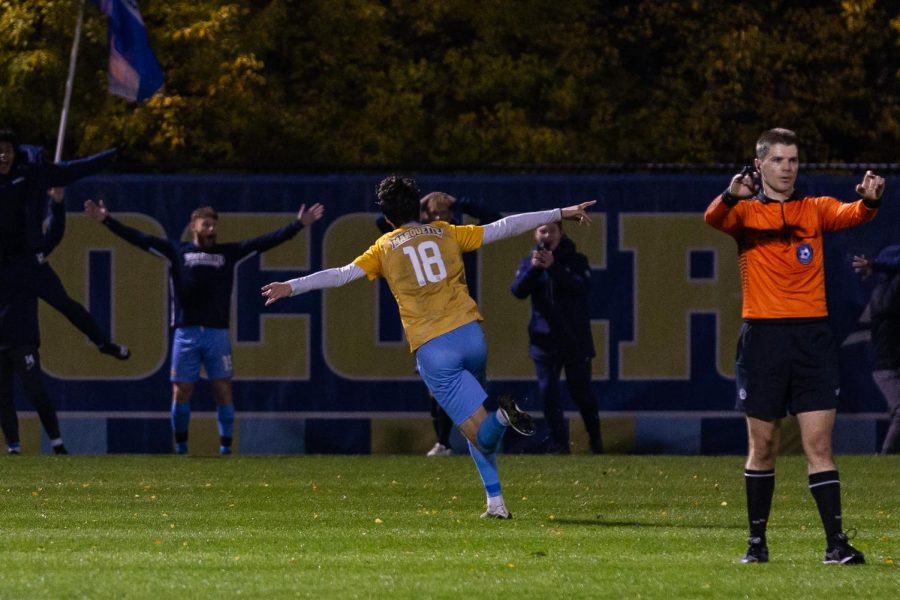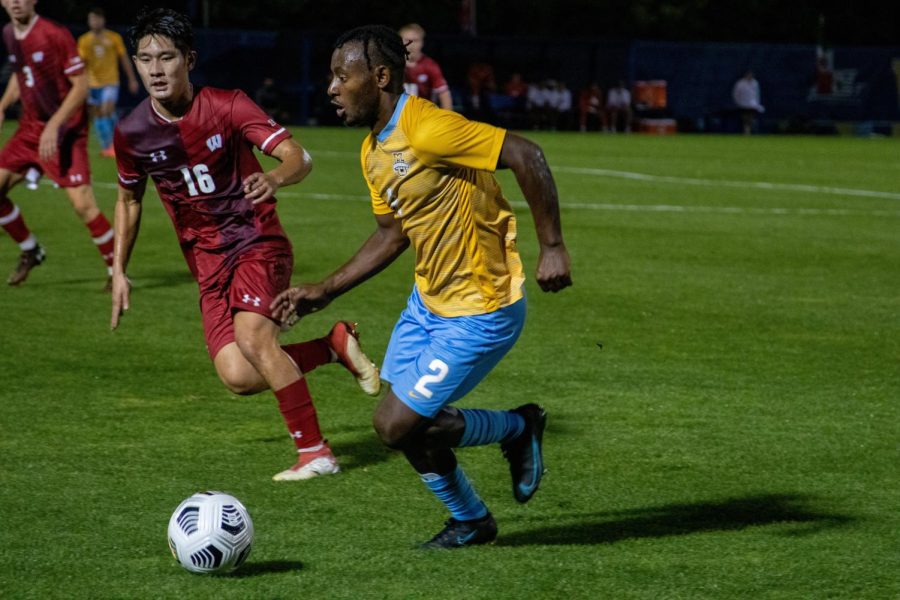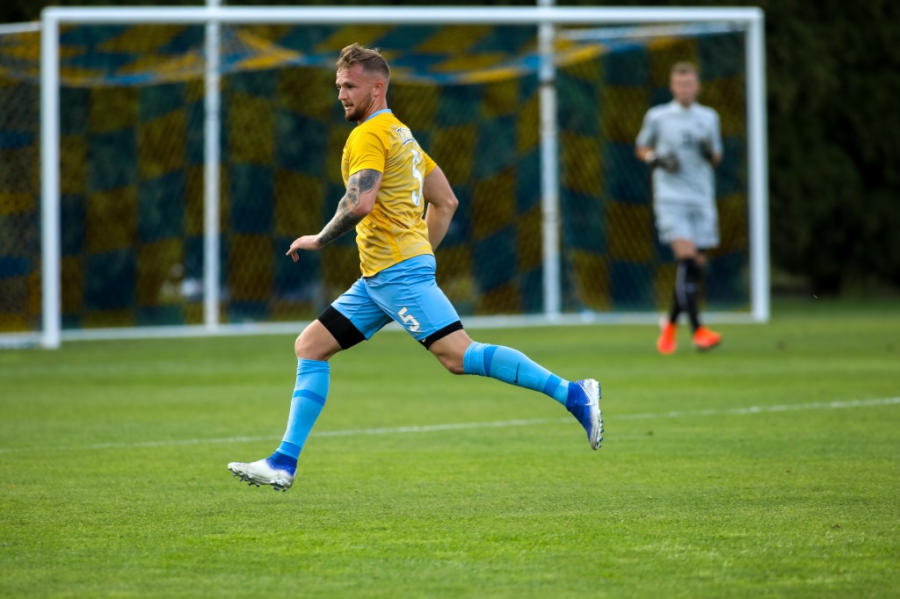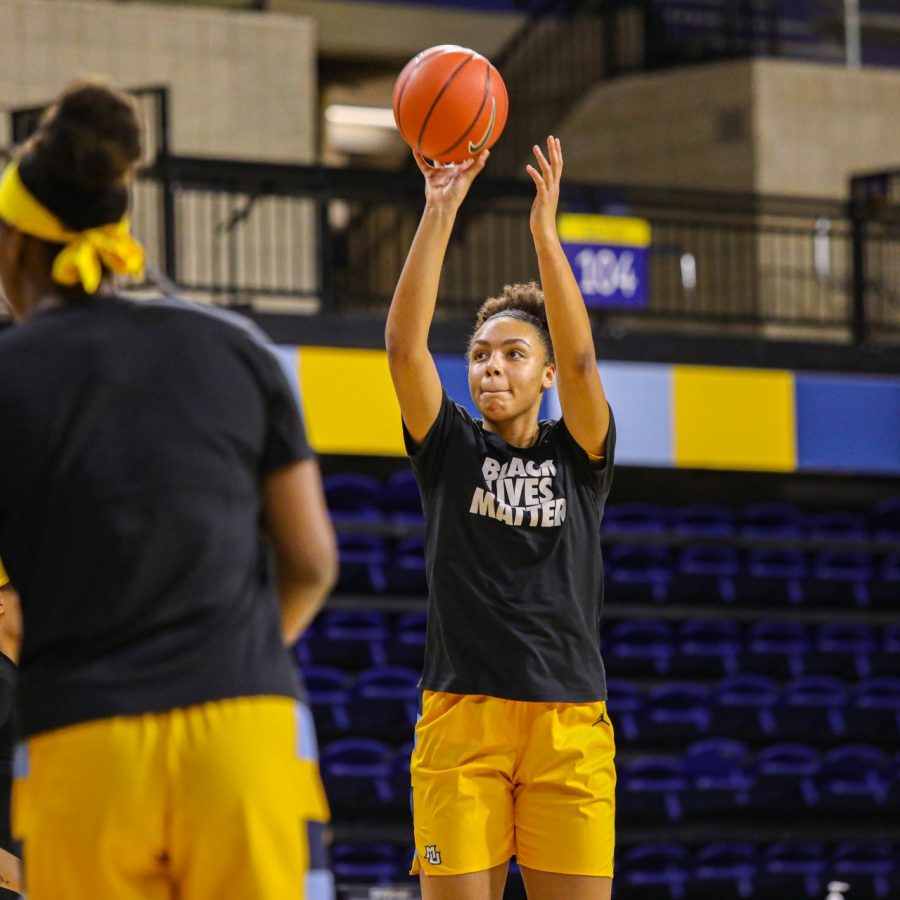
In 2002, NBA star Allen Iverson opened a famous rant about practice during an interview in which he said, “I mean listen, we’re sitting here talking about practice, not a game, not a game, not a game, but we’re talking about practice. Not the game that I go out there and die for and play every game like it’s my last, but we’re talking about practice man. How silly is that?”
Actually, it’s not that silly.
For men’s soccer coach Louis Bennett, practice can be more important than game itself. Practice is where teams learn. The players connect, improve their game and anticipate their upcoming opponents.
“We don’t want to just survive, we want to flourish,” Bennett said. “Practice is laying the foundation. You paint the picture in practice. In the game you’re just touching it up. If you don’t have the picture before you get into the game you’re in big trouble.”
Last Wednesday, the Marquette men’s soccer team prepared for its game against Cincinnati, which it won 1-0, with a two-hour practice down at Valley Fields.
“Our coaches always do a great job preparing us for what we’re going to see in the game,” defender Scott Miller said. “They like to put us in situations where we have to problem-solve and think quickly so that during the game, there’s no indecisiveness. We know what we’re going to do.”
[youtube]AJ2wFk_7pQM[/youtube]
A challenge to step up
The players arrive at the Marquette Gym first, heading to the locker room, where they change into their practice uniforms. Inside, the players take a moment to chat, joke and take in an English Premier League soccer match on television before jogging down to the field.
After most of the players arrive and have played a little kick-around, they circle up and stretch while Bennett lets the players know what he expects of them for the next two hours.
This practice was all about intensity.
“(It’s about) making sure that you can play quickly and knowing it’s going to be rammed down our throats,” Bennett said. “And be aware of all situations. I have to create an environment they can find in a game and see which guys can handle it.”
When Bennett concludes, the players set up cones and posts at different areas of the field. They warm up by running around cones at four points, switching off trapping and releasing the ball, followed by running through a rope ladder and handling a ball between staggered posts.
Warm ups are followed by a two-on-two drill, where Bennett passes the ball to two strikers, who attempt to shoot at goal against two opposing defenders.
“We always want (practices) to be a higher level than the games,” sophomore Mike Alfano said. “Every practice I’m just down there to get better. Coming in from the games I have specific things that I want to work on. Just improving each practice.”
Other drills include a scrimmage of six-on-six called Ajax, in which players can use their hands and must use their heads before using their feet. Ajax is named for the Dutch team that used this drill during the 1980s and 1990s to develop different phases of the game. The drill is non-stop running, passing, and shooting — and with a smaller field to use, each pass must be quick and accurate.
The players took Ajax very seriously and mistakes were rarely tolerated by other teammates.
At one point, the whole team was divided into three groups. Two teams worked together while one team defended. Four goals were set up around the field and any goal was fair game to shoot on. However, the teams were required to make five touches before shooting. Bennett dubbed this drill “a midfielder’s dream.”
Bennett said he has implemented training techniques from all over the world — including drills from Brazil, Holland and Germany — while maintaining his own touch, which he believes will work for his team. He learned these techniques through film, books and discussions with other coaches. He said he has always been curious about how other programs and cultures influence the game.
At the end of practice, the team locks arms in a circle and goes over what the players learned in practice and what they need to improve on for a game situation. The circle is a true moment of reflection for the players, as they all have a chance to look at each other face-to-face and express what they feel needs to change.
As the sun set on the training field, Bennett felt he achieved what he set out for at the beginning of practice: intensity. Throughout the entirety of the practice, there were only two breaks for water and the pace never slowed.
“Ninety minutes,” Bennett said. “We take very few breaks. It’s about game intensity and we’ve never had it here. This is the first time in my four years here that we’ve had this competition.”
During practice, Bennett said he looks for players that work well under pressure and can play sharp. He is not afraid to put in new players if they show an ability to hold on to the ball and make smart decisions on the field. But practices are rarely the same.
“We change it up,” he said. “We would do some of the same things. I tweak them. Tomorrow it will be shooting and hardly any contact.”
But the intensity wasn’t limited to the drilling and the non-stop playing. The players themselves showed intensity towards one another. Thy challenged each other to step up and perform at a higher level.
If a player was not passing, looking up, or finding the open man, his teammates would let him know by telling him to pick up the pace or pay attention. At times, emotions boiled over, but Miller equates that to the new level of competitiveness in the team this year.
“We each expect certain things from our teammates,” Miller said. “When that doesn’t happen and that doesn’t happen, we let them know that they need to pick things up. Guys know when they’re not doing what the coaches ask. Usually they know.”
Junior midfielder Anthony Colaizzi knows that that this level of competition is normal with everyone competing for a starting spot and a chance to show Bennett who wants to win.
“I think it’s just because we have such a high standard for each other,” Colaizzi said. “We know that we are all good players and if someone is not playing up to their full ability then we’re going to get on them and make sure that they know that. We get on each other but we’re just trying to make each other better players.”



